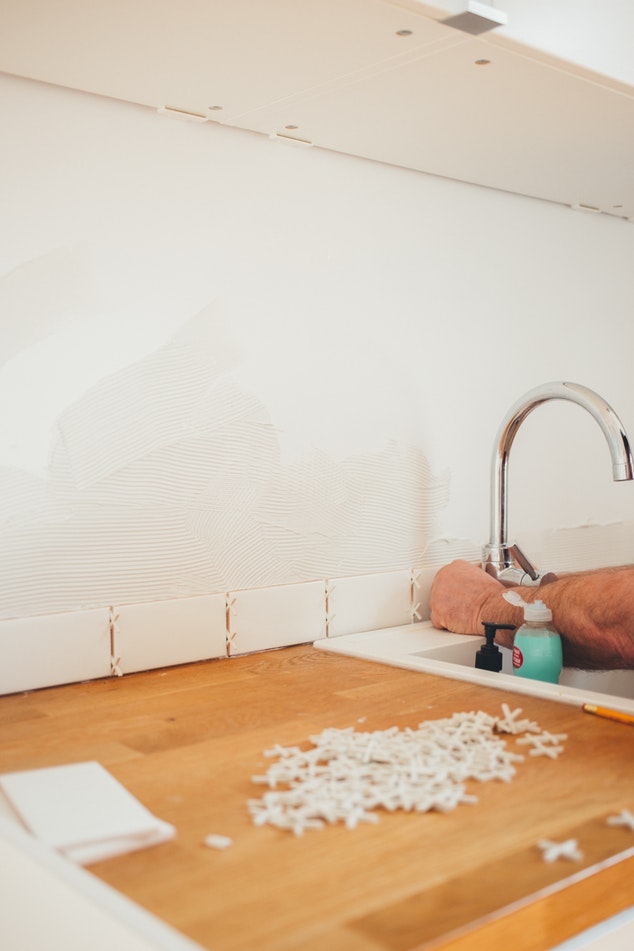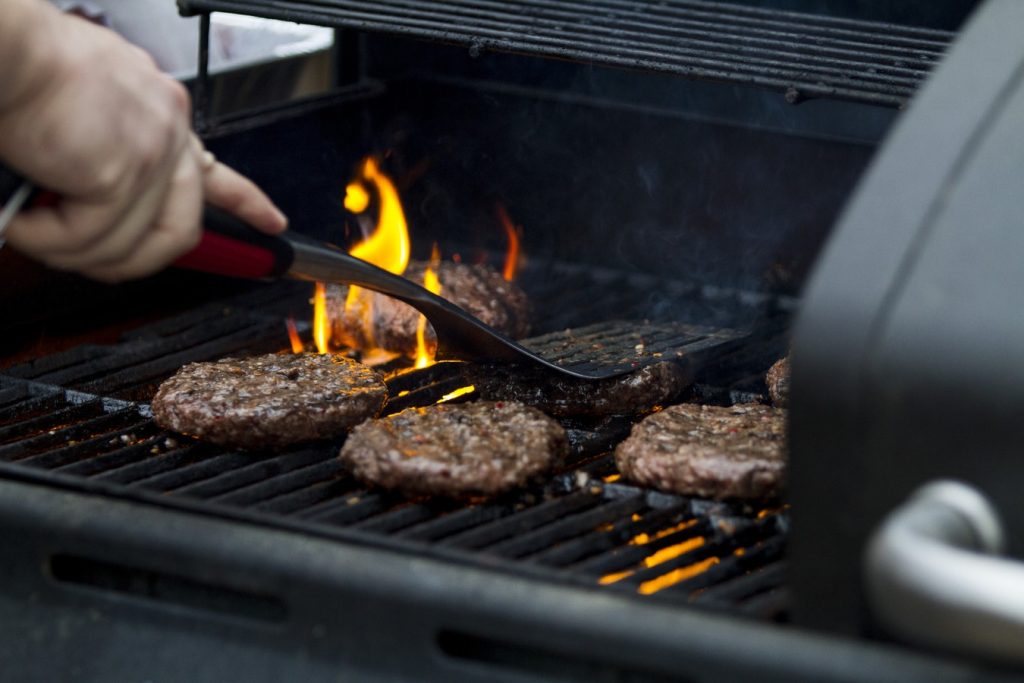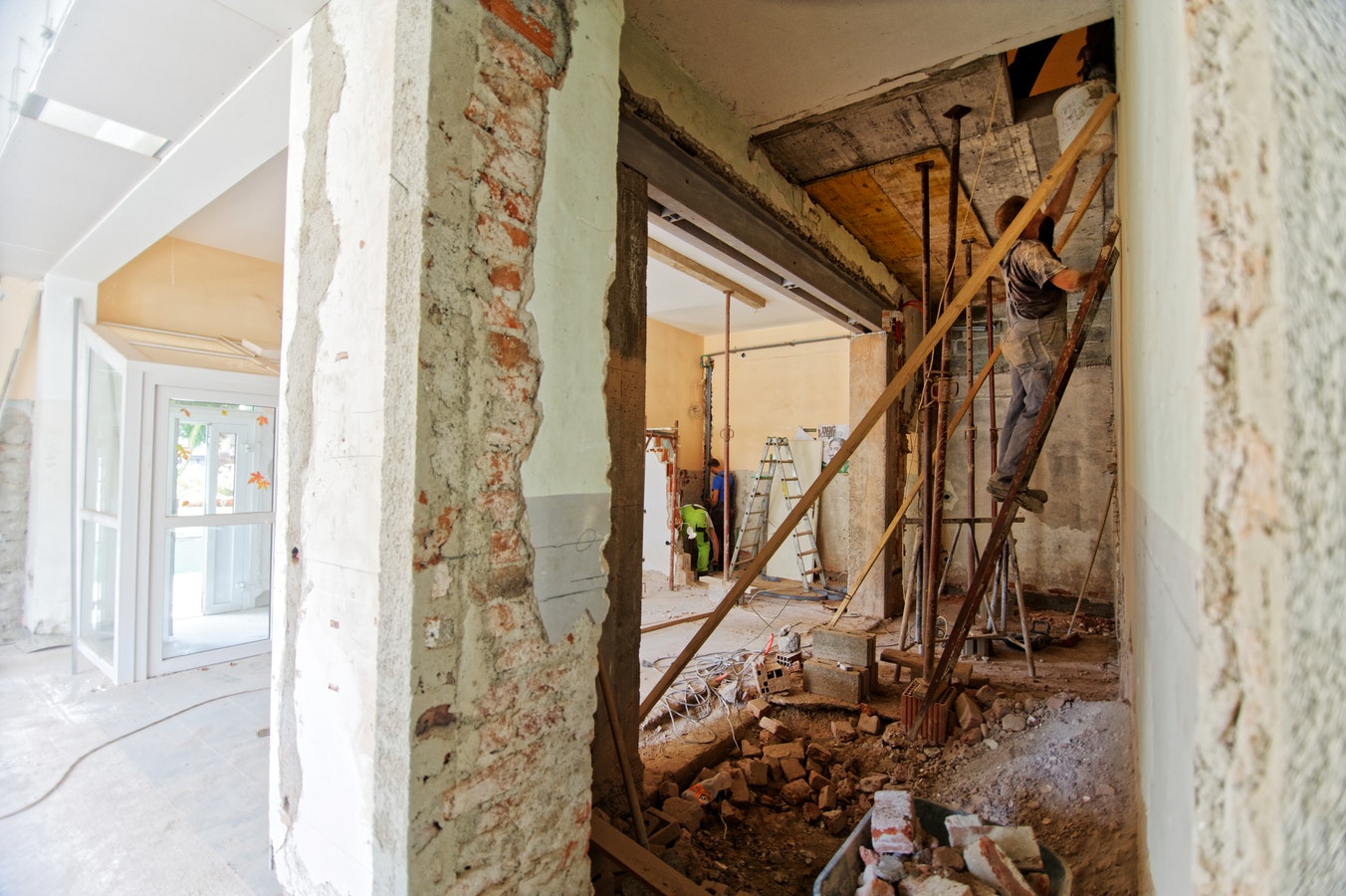Tips to Help You Live Through Kitchen Renovations
As exciting as they can be, kitchen renovations present a few challenges that often get swept under the rug. No, we’re not talking about issues you might find once you open up a wall or the challenge of altering a kitchen design you’re not totally happy with.
We’re talking about something much more basic: the fact that you won’t have a full kitchen until your renovations are finished.
When work begins, you’re likely to wander into your kitchen half-asleep, looking for your morning cup of coffee only to realize your kitchen isn’t really a kitchen anymore.
ht
Beyond the kitchen design process and physical impacts of construction, renovating a kitchen means you’re going to have to take some time to plan out a temporary solution to keep your family fed.

How Long Do Kitchen Renovations Take?
If you don’t count the planning and design phase, kitchen renovations typically last anywhere from four to eight weeks.
Of course, this varies based on the scope of the project. It’s not unheard of for larger projects to take up to three months or more. That ignores any setbacks you might encounter along the way, too.
From start to finish, if you include the design process and the time it takes to source and purchase materials, your entire project could be a 12-week process.
With up to half of that time covering actual renovation and construction work, that means you could be without a fully functional kitchen for six weeks or more.
What’s more, at the end of the day, kitchen renovation costs depend on your budget, materials, and contractors.
Your kitchen design contractors will give you estimates for the project. A good rule of thumb is to add 20 percent to the estimated cost to account for unexpected costs that could arise during the renovation.
It’s better to have that cushion in your budget than risk going too far over budget.
How Renovations Affect Your Day-to-Day Life
Renovations are noisy and messy. Your contractors will do their very best to minimize the impact on your life and keep things as tidy as possible, but the fact of the matter is that it’s a messy job. Once work begins, your kitchen will be out of commission until the job is complete. As such, you’ll have to find another place to prepare meals.
This might not seem like a big issue at first but consider just how much use your kitchen gets during a single day. It’s the heart of the home, and you likely spend far more time there than you might be aware of.
Temporary kitchens or food-prep areas are vital if you plan on staying in your home during the renovation process! Otherwise, you might be eating out a fair amount, which adds up quickly.
Setting Up A Temporary Kitchen
A temporary kitchen elsewhere in your home can save you from the added costs of eating out night after night. While it’s tempting, the actual cost of eating out so often might put a serious dent in your savings if you’re doing it every day for the full six weeks of construction.
If you can set up a temporary kitchen in your home, it’s going to offer a lot more flexibility. If your dining room includes a convenient sideboard, it’s a perfect place to set up. You can include a few handy appliances, store food items, and set up a small dishwashing station.
Make sure to include a trusty trashcan with a lid, a dishwashing tub, soap, brushes, and a few dish towels. If you can, get a small drying rack, too. Alternatively, invest in some compostable dinnerware that you can use a few times before chucking. It’ll cut down on your dishes without creating more pollution.
There are plenty of handy appliances to include, too:
- Coffeemaker
- Electric kettle
- Microwave
- Mini fridge
- Toaster or toaster oven
- Portable electric grill
- Electric frying pan
- Slow cooker
Don’t overlook the flexibility offered by a barbecue! Keep your propane tanks topped up and fire up the grill to cook a quick meal outdoors. This is even an option during milder winter weather if you’re pressed to cook a meal up.

Easy Meals
Avoid cooking messy meals that require plenty of cleanup. You probably don’t want to wash off thick pancake batter or grease from dishes in your beautiful bathroom sink.
Meals that are ideal for a makeshift kitchen include:
- Foods you can toast indoors
- Grill-friendly foods
- Foods you can microwave
- Soup
- Sandwiches
- Cereal
Leave out vital meal prep items, like cutting boards, cutlery, dishes, pots, and pans. You don’t need a full set of kitchenware, but the basics will keep you going until you get your kitchen back.
Tips for Minimizing Renovation Impact
Prepare for Noise and Dust
Renovations are noisy and messy. If you leave for work every day, you won’t have to endure this disruption as much. But if you work from home, or you’re retired, plan to spend more time out of the house.
To protect your floors and furniture from construction mess, contractors will usually lay down drop cloths and carpets along the path they’ll be using in your home. Keep a few drop cloths of your own on hand just in case. Also, keep your pets out of the way of contractors.
Prep Meals Ahead of Time
If you’ll have access to a freezer during your renovations, cook meals and freeze these in microwave-safe containers before the renovations start. This will make eating lunch and dinner a whole lot easier.
Alternatively, if you have a slow cooker, set it up early in the day in your temporary kitchen and get a delicious meal when you come home. The only downside is that the smell of cooking food might mean a few hungry contractors will want to join you for dinner!

Get Your Grill On
Even in the middle of winter, you can use an outdoor grill to cook dinner. You can also use your pots and pans on the grill. Just rub a bar of soap on the bottom and sides to wash off any soot.
Look up grilling recipes online to discover new tasty meals while your kitchen is under construction.
Set Up a Dining Table
If you normally eat meals in your kitchen, you’ll want to use a table elsewhere to dine on. This could be a patio table in your backyard, a drop-leaf table, or a card table.
As tempting as it might be to eat at your coffee table, you’ll regret this decision if you spill food on your couch or carpet.
Designate One Room as a Construction Free-Zone
Choose a comfortable room in your house that is off limits to anything renovation-related. Ideally, this room will not be next to your kitchen. But if it is, make sure everyone involved in the renovation project knows this room can’t be used for walking through or storing construction supplies.
If you have a room you can escape to and unwind in during the renovations, you’ll be able to reduce your stress and make it through the renovations with your sanity intact.
While kitchen renovations can disrupt your daily routine for a while, you can get through this time with careful planning beforehand. And this temporary disruption will be worth it when you can start using your new dream kitchen.
